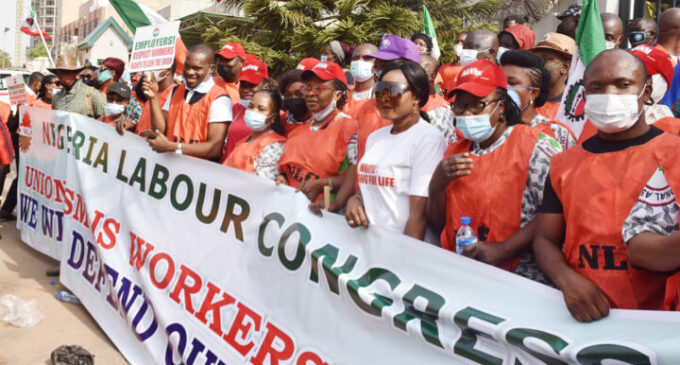
The Federal Government and labor unions are locked in a heated dispute over the national minimum wage. The government warns that a drastic increase could lead to economic instability and mass layoffs, while unions demand a minimum wage of N250,000, rejecting lower offers as “starvation wages.”

Minister of Information Mohammed Idris cautions that a significant increase could undermine the economy and jeopardize citizens’ welfare. President Bola Tinubu claims an agreement has been reached, but labor unions refute this, stating that negotiations ended without a consensus.
The Nigeria Labor Congress (NLC) insists on a minimum wage of N250,000, rejecting government and private sector offers. The NLC labels these offers as “starvation wages” and reports intimidation by security agencies during negotiations.
The government emphasizes the need for a sustainable and realistic wage system that balances worker needs with economic stability. Initiatives like the Presidential Compressed Natural Gas (CNG) program aim to alleviate the cost of living.
Religious leaders are urged to raise public awareness about government initiatives and available opportunities. The outcome of these negotiations will determine Nigeria’s future economic and social stability.
The dispute highlights tensions between labor unions and the government. While the government advocates for a realistic wage system, labor unions demand a higher minimum wage, rejecting lower offers. A resolution is crucial to avoid further uncertainty and ensure economic growth and national security.



